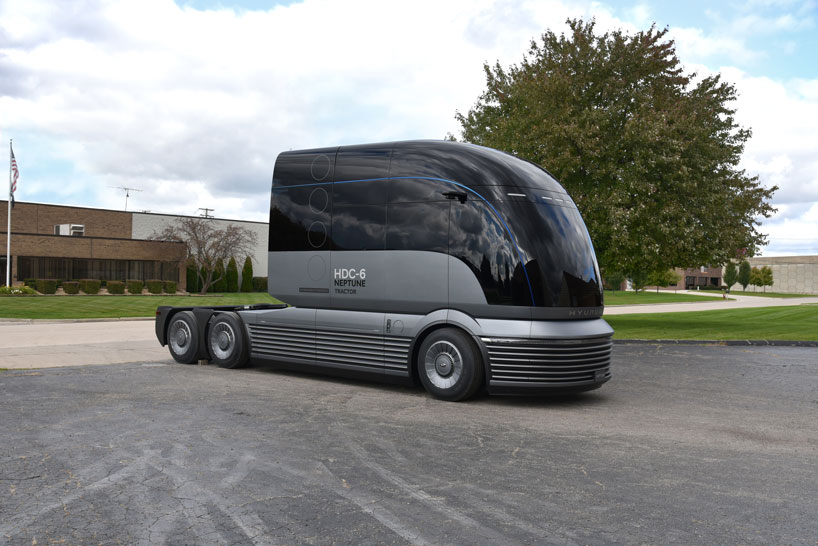The company is also looking at entering the U.S. market for commercial vehicles.
Hyundai was a big success in 2013 when it introduced its first fuel cell electric vehicle, the FCEV. The Nexo has been introduced by the South Korean automaker and $6.4 billion has been invested in the technology. Today’s announcement by the company included two new concepts: a hydrogen-powered fuel-cell electric semi-truck, and a refrigerated truck. It also stated that it would “start exploring opportunities” for the U.S. commercial vehicle sector.
These two concepts together offer a glimpse into the future of goods transport. The Hyundai HDC-6Neptune semi-truck is an evolution from the Class 8 truck. It’s a sleek, technology-packed cargo-hauler that uses a modern design, drawing heavily from Art Deco streamliner railway trains of the early and middle 20th centuries. The large grille is essential for cooling. It wraps around the lower part of the cab and conceals integrated steps.
Hyundai also displayed a refrigerated trailer, which would be the perfect match for the HDC-6 Neptune. The HT Nitro ThermoTech trailer concept is for cold product transport. It uses a cryogenic nitrogen refrigeration system system that Hyundai claims leaves a 90% lower carbon footprint than a traditional unit. The cooling system is virtually silent, reducing noise pollution both for drivers and during deliveries. A new structural design has been added to the trailer. The side walls, roof and front walls are all made of the same foam panel. The trailer is lighter, stronger and more insulated.
These two new reveals go beyond Hyundai’s FCEV Vision 2030 plan, which aims to build at least 500k FCEVs per year by 2030. The technology is still very new and only limited availability in the United States. This problem is facing many hydrogen-powered vehicles on the market. Hyundai is however investing in hydrogen fuel-cell development to speed up the process and provide the infrastructure necessary. Hyundai supports this ambitious goal with its FCEV concept.